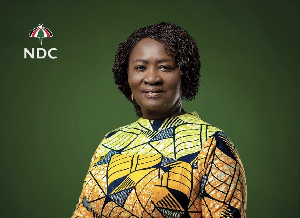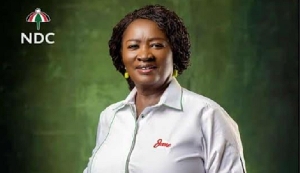Dr Nii Kwaku Sowa, Chairman, Economic Policy Committee, National Development Planning Commission (NDPC), has urged Government to off-load some of its shares in State-Owned Enterprises and use the funds so raised for development.
He said there had been a significant improvement on the Ghana Stock Exchange; stating that from a humble beginning, the Ghana Stock Exchange now had 34 equities listed on the Exchange with total market capitalisation of almost 60 billion Ghana Cedis as at the end of June.
He also suggested that remittances by Ghanaians abroad could also be mobilised as development finance.
“In 2018, Ghanaians in the diaspora are said to have remitted home about $3 billion. This is a huge flow of resources into the country. However, most of this goes into home construction and other consumption activities,” Dr Sowa stated on Wednesday at the NDPC’s Third National Development Forum (NDF) in Accra.
The Forum on the theme “Innovative Financing for the Ghana@100 Development Agenda”, is a continuation of the NDPC’s dialogue on national development, its financing, and how the Ghana @100 agenda would be achieved.
The Commission instituted the monthly forum to both inform and solicit the views of individuals and diverse stakeholder groups.
Dr Sowa said finance experts had suggested the introduction of diaspora bonds as debt instruments by governments to raise development finance from its diaspora communities was a viable alternative to borrowing from the international capital market, multilateral development finance institutions (DFIs) or securing bilateral loans.
“Again, the experts advise that securitization of remittances from Africa’s Diaspora can be another valuable source of development finance essentially as long-term funding through the sale of assets to a special purpose vehicle (SPV) that then incurs debt secured (remittance-backed bonds) by the assets, which are collateralized by the future income stream,” he said.
He said development projects were mostly of medium to long term projects; stating that borrowing from banks and the public through the sale of Treasury bills, while a good way to plug a short-run budgetary gap, could be a costly way to finance a meaningful development project.
He said with the reorganisation of the Pension Scheme in Ghana the portfolio of Assets Under Management has increased substantially.
Dr Sowa said by the close of 2018, Fund Managers reported total AUM of about 19.4 billion Ghana Cedis, of which Pension Funds alone contributed almost half. He said the establishment of the Ghana Fixed Income Market (GFIM) in 2015, had also gradually build the culture of secondary trading, thus making the Bond Market more active.
He said currently, there were several government securities of maturities ranging from 91 days to 15 years listed on that market with a total outstanding value in excess of GHC72billion.
He said it was significant to note that Corporate Bond issuance had also picked up on the GFIM.
He said by the close of 2018 a total of 10 companies had raised a total of GHC7.3billion from the market, adding that this was only with four years into the commencement of trading on GFIM.
Dr Sowa said finance flows where the market was fair and efficient; “no investor will give up his or her funds where there are doubts about recouping the investment when it is due”.
He said it was important for government to establish credibility beyond doubt that it was managing its resources well.
“This will mean a demonstration of a robust macroeconomic system; well-functioning institutions, particularly, those of law and order and the financial sector, and well-regulated and efficient financial system,” he said.
“Once, these conditions are satisfied, finance is bound to flow in; only that special purpose vehicles would have to be established to source and direct the funding to the appropriate development projects.
“I believe our goal of a high middle-income country is within reach, we only need to organize our house properly to take advantage of the opportunities available.”
Professor Stephen Adei, Chairman, NDPC, said he believed that Ghana could find the money to finance its own development agenda by enhancing revenue mobilisation to move from the current 16.5 of gross domestic product (GDP) to 25 per cent.













